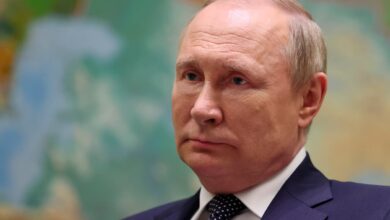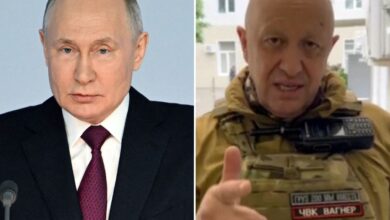Has the media finally gone too far writing about Anthony Bourdain’s death?

In the 1880s, a British newspaper editor named WT Stead scandalised the masses with a series of articles in the Pall Mall Gazette called “The Maiden Tribute of Modern Babylon,” a wild piece of yellow journalism, but one with a purpose. At the time, it was common practice for the rich to buy children from poor families as prostitutes. Stead set out to expose the horrors of this system, going through the process of purchasing a teen sex slave for £5 and even implying he may have raped the child, though he in fact didn’t.
The story caused a sensation, with some newsagents blacklisting the obscene, ethically outrageous article, while others sold a combined million copies in one week. The scandal surrounding the series simultaneously raked in pounds and helped convince Parliament to raise the age of consent to 16, both outcomes Stead was hoping for.
All that is to say, scandal, money-making, and genuine public purpose have been hopelessly intertwined for as long as the popular press has existed. Modern times have taken this mess to new heights, with media coverage playing a role in impacting the lives of people like Amy Winehouse, Britney Spears and Princess Diana. But the suicide of legendary food writer and TV travel host Anthony Bourdain in 2018 exposed a new version of this vexing paradigm.
In an ethically questionable move, filmmaker Morgan Neville used artificial intelligence software to secretly reconstruct Bourdain’s voice for his 2021 documentary Roadrunner: A Film About Anthony Bourdain. Neville did so without permission from Bourdain’s family and didn’t initially disclose this fact to his audience. A new biography, Down and Out in Paradise: The Life of Anthony Bourdain, by journalist Charles Leerhsen, which arrives this month, goes even further.
It uses leaked text messages and data from Bourdain’s computer hard drive. The book’s author even stays in the hotel room in the village of Kaysersberg, France, where Bourdain died. A century and a half after WT Stead, has the popular media learned anything about the right way to tell a sensational story? Does a right way even exist?
More than just a chef-turned-CNN TV personality, Anthony Bourdain was a legend, a rock star in every sense but making rock music.
There were some critics, like Nigerian chef and writer Tunde Wey, who argued Bourdain was selling a repackaged version of colonial rapacity, “the expansive firmament of White Americanness,” just disguised through eating.
Legions of Bourdain fans, however, in and outside the food world admired his literary New York swagger, pan-cultural curiosity, and acid critiques of inequality and imperialism, like when in 2002 he famously wrote in A Cook’s Tour: Global Adventure in Extreme Cuisines, “Once you’ve been to Cambodia, you’ll never stop wanting to beat Henry Kissinger to death with your bare hands.”
The new book from Mr Leerhsen, a former top editor at magazines Sports Illustrated and People, looks beyond the legend of Bourdain and sees the much more flawed and fascinating man underneath. The biography reports the host using steroids and blackout drinking, Googling himself constantly and maintaining his tan in UV beds, visiting prostitutes and being largely absent from his 11-year-old daughter’s life.
Members of Bourdain’s family and friends, like chef Eric Ripert, have said the book isn’t accurate. Mr Leerhsen argues Ottavia Busia-Bourdain, Bourdain’s ex-wife, who controls his estate, has not objected to the material it contains. The author has declined to comment on whether he interviewed Ms Busia-Bourdain for the book, though she is quoted.
The most highly charged passages concern the end of Bourdain’s life.
At the time, he was going through a tumultuous relationship with Italian actor and director Asia Argento. The pair weathered ups and downs. They were embroiled in tensions with Bourdain’s tight-knit film crew and there were tabloid reports of Ms Argento dancing with French reporter Hugo Clément in a Rome hotel where she had previously stayed with Bourdain.
Most controversially, the book details, Bourdain helped arrange a $380,000 payoff to Jimmy Bennet, a musician and actor who said Ms Argento had sex with him when he was 17, still a minor. The two met years before, when Mr Bennet played Ms Argento’s son as a 7-year-old child actor.
The scandal complicated the public image of Ms Argento and Bourdain, who both became outspoken advocates for the #MeToo movement in 2018, after the Italian actress accused disgraced producer Harvey Weinsten of raping her. (Ms Argento declined to participate in the biography, and denied ever having a sexual relationship with Mr Bennet, saying the payoff was Bourdain’s idea).
Fan’s imagined the Parts Unknown host living a life of international glamour and adventure, but constantly being in the public eye was starting to weigh on Bourdain.
“I hate my fans, too. I hate being famous. I hate my job,” the host wrote to Ms Busia-Bourdain in a text message, the new book reports. “I am lonely and living in constant uncertainty.”
The book opens with the final messages, which won’t be reprinted here, that Bourdain sent Argento before he killed himself.
“I think at the very end, in the last days and hours, he realized what he had become,” Mr. Leerhsen told New York Times. “I don’t respect him killing himself, but he did realize and he did ultimately know he didn’t want to be that person he had become.”
The Independent contacted Mr Leerhsen’s publisher for an interview with the author about the book and its reporting principles.





